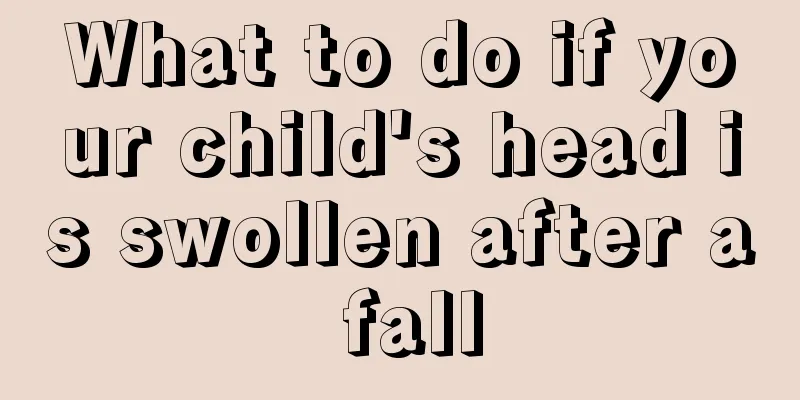Why does a child sweat on his head when sleeping?

|
We all know that children are naturally lively and active, and sweating is also a common symptom in children. However, many parents will find that their children also sweat when they sleep, which often makes parents particularly worried. They don’t know whether the child has a health problem or a lack of trace elements in the body. If such a problem occurs, we must grasp the cause and make timely adjustments. Let’s understand why children sweat on their heads when they sleep. Why does a child sweat on his head when sleeping? It is common for babies to sweat during sleep, and it is not always a symptom of weakness or illness. Many parents believe that their children’s constant sweating is due to their weak constitution. In fact, a considerable number of children suffer from physiological hyperhidrosis. Physiological hyperhidrosis is more common in the head and neck, often occurring within half an hour after falling asleep, and sweating stops in about an hour. Infants and young children have an active metabolism and are active and lively. Some of them cannot rest even after going to bed at night, so they may sweat on their heads after falling asleep. The so-called physiological hyperhidrosis refers to sweating during sleep when the child is well-developed, healthy, and has no disease. Parents are often accustomed to deciding the best environmental temperature for their children based on their own subjective feelings, and like to cover their babies with more blankets and keep them tightly covered. Because children's brain and nervous system are not yet fully developed and they are in the growth and development period, their body metabolism is very active. Coupled with the stimulation of overheating, they can only regulate normal body temperature by sweating to evaporate the heat in the body. Some active children exercise a lot during the day and generate a lot of heat. The body is unable to dissipate the excess heat through sweating, so the heat accumulates in the baby's body, and the baby's body temperature can reach around 38°C at night. After the baby falls asleep, the heat generated decreases, the sensitivity of the sympathetic nerves decreases, and the body dissipates excess heat through sweating to maintain normal body temperature. In addition, drinking milk, malted milk or eating chocolate before going to bed can also cause sweating in children. Some parents give their children milk, malted milk, etc. before they go to sleep. After the child falls asleep, the body produces a large amount of heat, which is mainly dissipated through sweating through the skin. In addition, too high room temperature or excessive warmth can also cause children to sweat while sleeping, which are all physiological sweating. The weather is hot and stuffy in summer and the bedroom is poorly ventilated, so babies are more likely to sweat. This type of sweating is called "physiological sweating" in medicine. It usually occurs in the first half of the night when you just fall asleep, and the sweat gradually disappears after deep sleep. Parents do not need to worry too much about physiological sweating. This is just a physiological phenomenon during the baby's growth process. As the baby grows older, this phenomenon will gradually decrease. The above is an introduction to why children sweat on their heads when they sleep. After understanding it, we know that there are many reasons for this phenomenon. First of all, parents should understand whether the child is wearing too many clothes or the quilt is too thick. On the other hand, if the child lacks trace elements, do not blindly give the child medicine to supplement. Be sure to go to the hospital for examination and supplement the trace elements under the guidance of the doctor. In addition, children must be allowed to exercise outdoors more in daily life, so as to improve their body's immunity. |
<<: What is the reason for the yellow hair of children
>>: What is the sleep time of a baby over one month old?
Recommend
White spots on the child's throat
Many children are found to have white spots in th...
What to do if your child often catches a cold
Every child is the apple of the parents’ eyes. Pa...
The benefits of babies sleeping on their stomachs
Nowadays, many children not only like to sleep on...
Can children drink tea?
When taking people to drink tea, many children wi...
Poor brain development in babies
If you find that your baby's brain developmen...
Is bedwetting a disease in a nine-year-old child?
It is normal for infants and young children to we...
Is it really good for children to drink milk every day?
The nutritional value of milk itself is very high...
Why does the baby cry suddenly when sleeping?
Some babies cry loudly while sleeping. In many ca...
How to treat pneumonia in a three-month-old baby?
Some babies suffer from enteritis, so they need t...
What to do if your baby is short
Basically every parent hopes that their children ...
What should I do if my 3-year-old baby gets angry?
In our lives, getting angry is a relatively commo...
What is the height and weight of a three-year-old girl?
In our daily life, many parents are always afraid...
What tests will be done on newborn babies?
Many people don’t know that it is necessary to ch...
Is it good for children to drink pure milk?
Many parents will prepare a variety of foods for ...
What can babies eat to gain weight?
Many babies are small and delicate when they are ...









